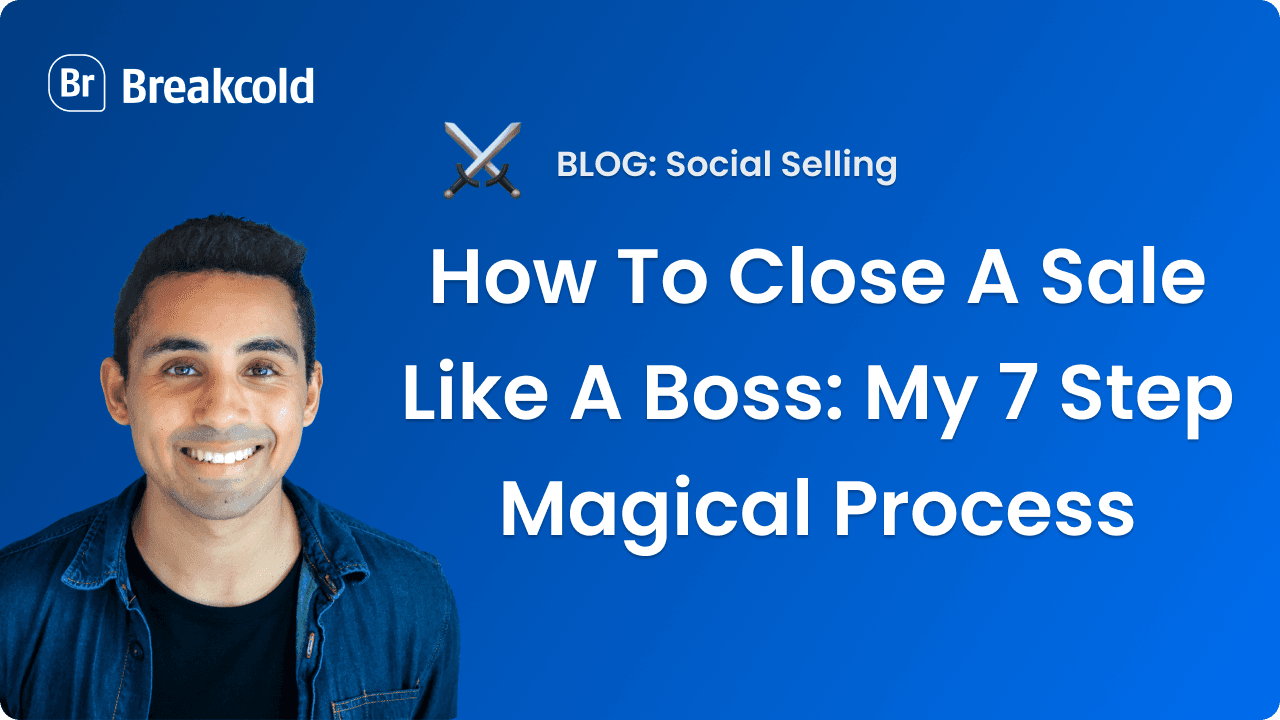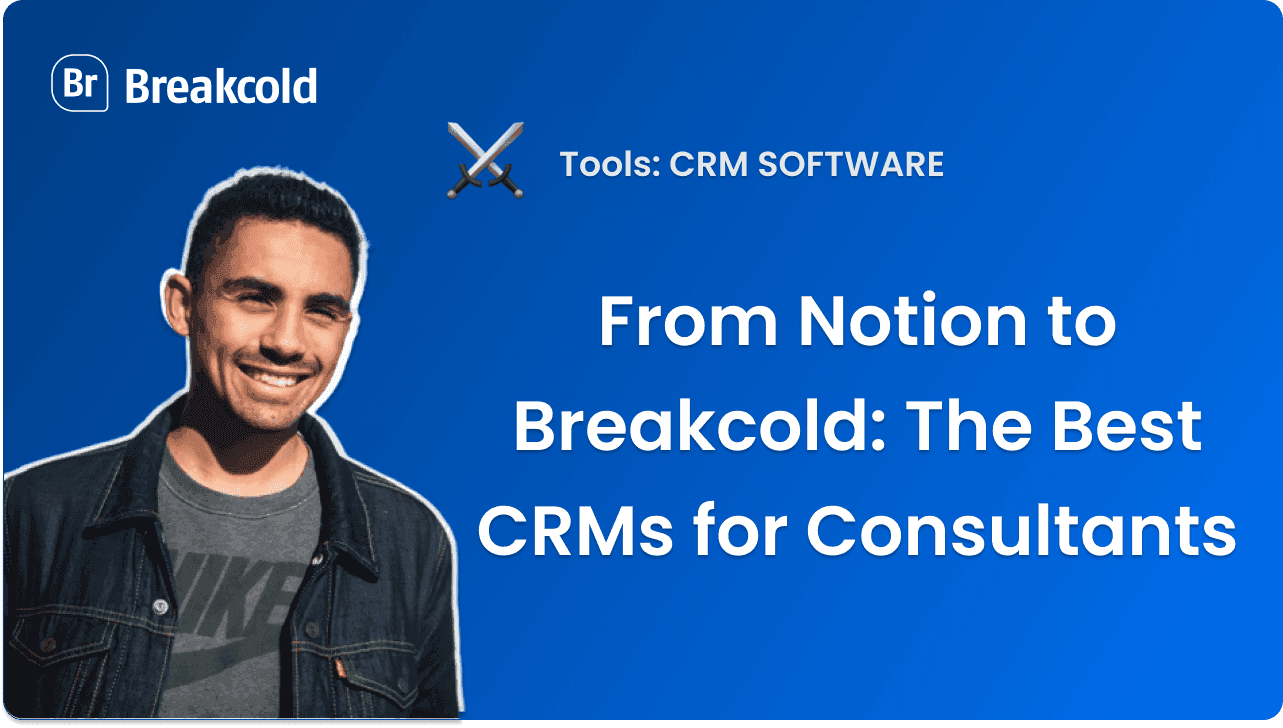Summary Video
1°) What are Sales Pipeline Stages?
A sales pipeline stage is a step corresponding to the customer journey of your prospect. During each stage of a sales pipeline, different kind of actions need to be performed.
A sales pipeline can have 4 or 15 sales pipeline stages you want to really detail the customer journey of your prospects but overall there are 7 traditional sales pipeline stages (+ an 8th one according to this blogpost).
Sales pipeline stages are generally built into a CRM used by sales teams.
Why are Sales Pipeline Stages used in B2B sales?
The utility of sales pipeline stages is to help you stay organized in order to accelerate your sales cycles. Your goal is to move as fast as possible each prospects in each sales pipeline stage until they become paying customers and beyond.
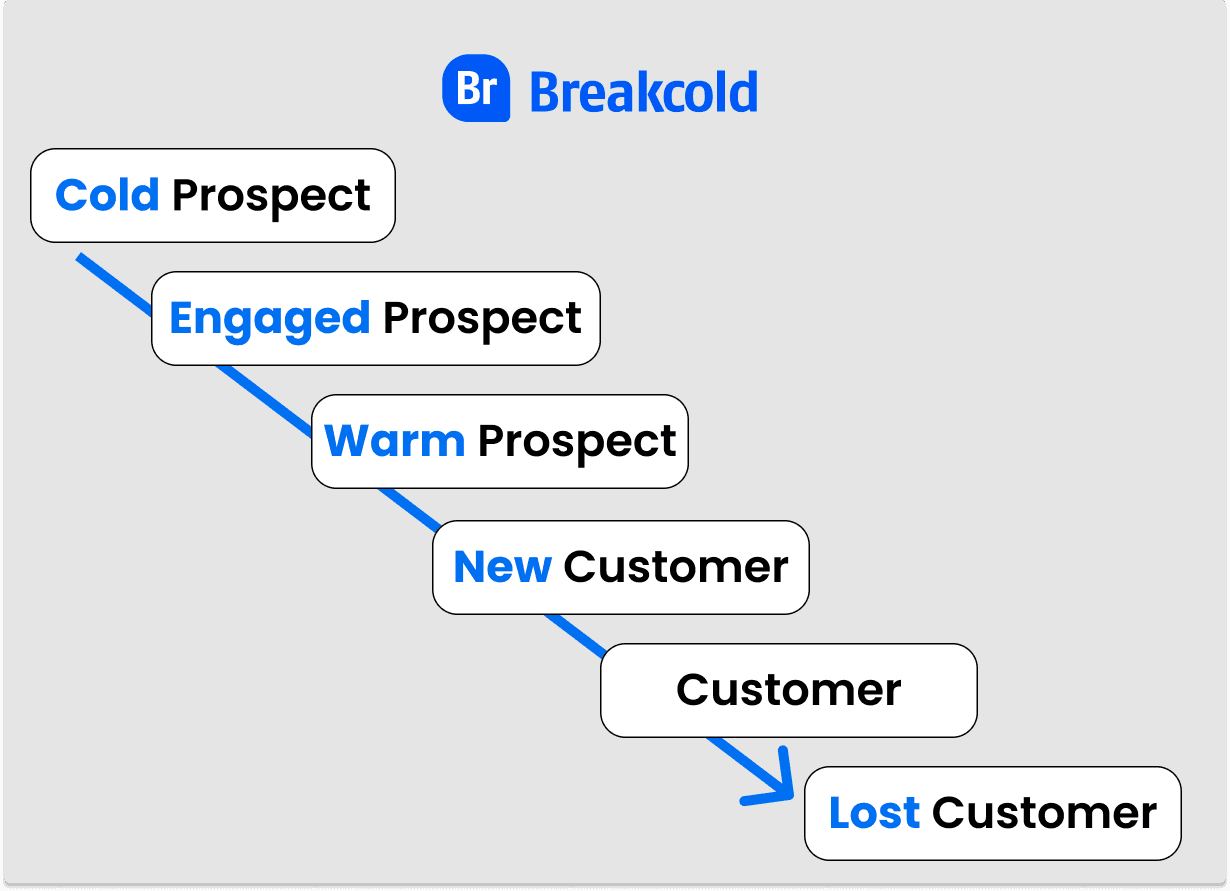
Example of 6 sales pipeline stages
What is the utility of the probability percentages?
In a sales pipeline, the probability percentages help you determine how much you have in your pipeline and how much deals you've closed. In a sales pipeline, there is a separation between pipeline and deals closed.
The pipeline number is an estimate of how much you'll make for a certain period (some companies reason in Q1, Q2, Q3 and Q4).
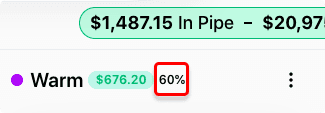
Example of the probability percentages in a CRM
Let's take an example:
your offer is worth $100,000 annually (including churn)
you have 10 prospects in your warm sales pipeline stage
the warm sales pipeline stage probability percentage is 60%
you have 5 prospects in the closed sales pipeline stage
If you have 5 prospects in the closed stage, it means you've successfully brought $500,000 in the business. This amount goes to the closed section.

If you have 10 prospects in the warm stage, it means that you have $600,000 in your pipeline, meaning that you'll probably close $600,000 out of the $1,000,000 total value of the sales you can make.
How are calculated the probability percentages?
The probability percentages can be calculated automatically overtime by your Sales CRM as you move prospects in different sales pipeline stages. Otherwise, it's a number that you decide yourself from your past closing experiences.
Which softwares can you use to build a Sales Pipeline?
You can build a sales pipeline with every kind of tools technically:
Excel or Google spreadsheets
Notion or Clickup
Breakcold or Pipedrive
However, it's always best to use a true sales software to create a sales pipeline. You won't be able to automate many actions or to track leads if you're using a simple Google spreadsheets.
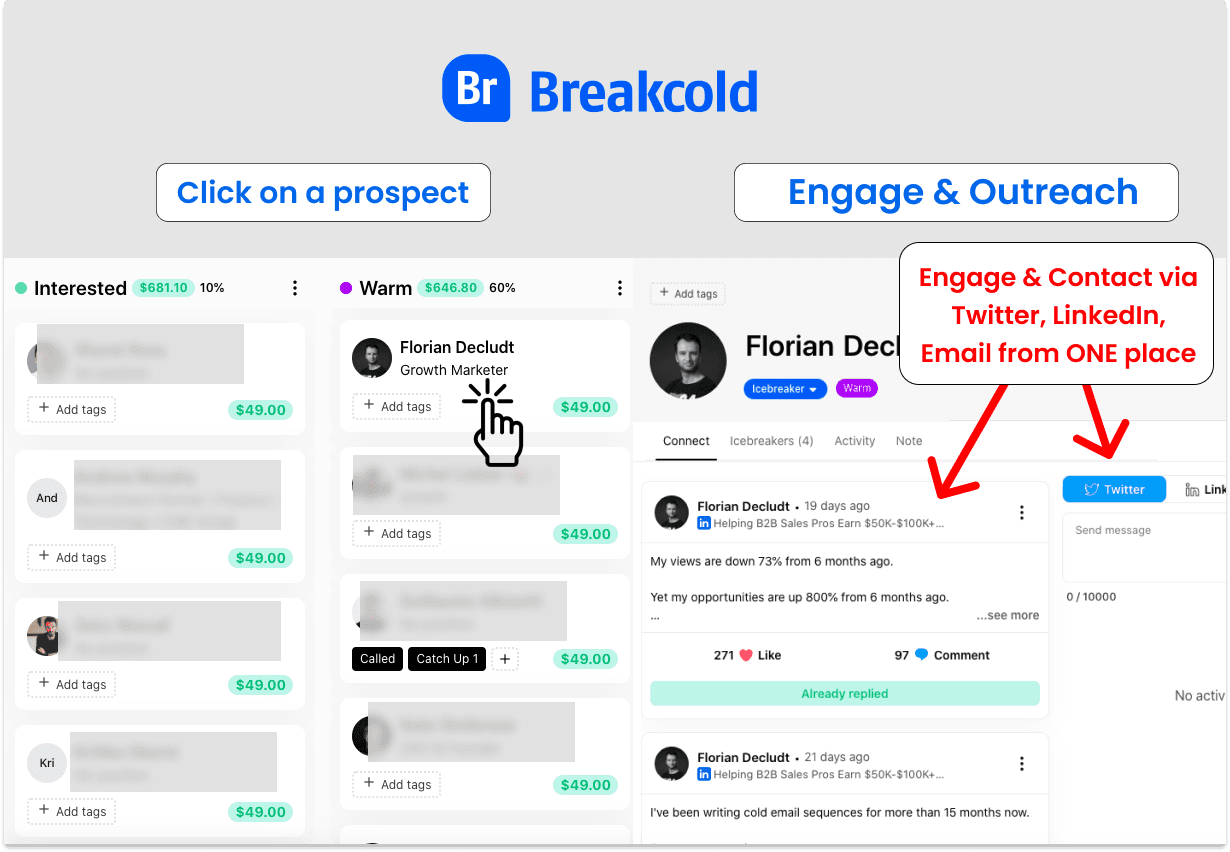
Example of a warm sales pipeline stage
For example you can use Breakcold, which is a sales CRM. You can build as many sales pipeline stages and from the CRM track the social media activity of your prospects on platforms such as Twitter or LinkedIn.
2°) The 7 Traditional Sales Pipeline Stages
Sales Pipeline Stage 1: Prospecting
What is the state of the prospect during this phase?
During that phase, your goal is to find and contact your cold prospects. You'll have to spend many hours doing sales prospecting and social selling to generate leads. Lead generation is an important phase of any sales pipeline model.
What actions need to be taken to move the prospect to the next stage?
During the prospecting phase, depending on the type of business you operate, you'll have to:
send cold emails
find prospects to reach out to
cold call more than 60 people per sales representatives
send LinkedIn and Twitter messages
like and comment prospects posts on social media to create a B2B relationship faster
publish content on social media
run ads
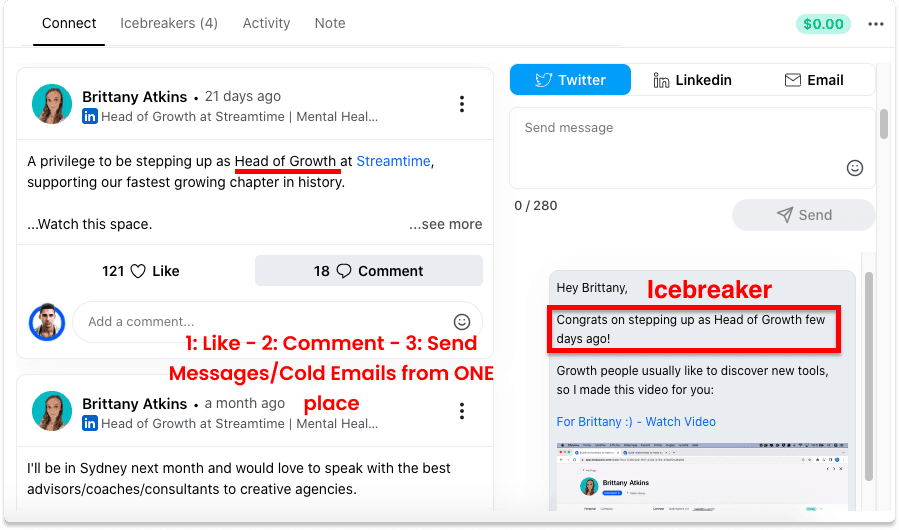
Cold email sent using Breakcold
For example, when it comes to my own social selling software, I mainly find leads using LinkedIn sales navigator and I engage them using Breakcold. In the meantime, I'm also running cold email campaigns.
Sales Pipeline Stage 2: Lead Qualification
What is the state of the prospect during this phase?
During this stage, you're trying to determine which leads are qualified or not. Not all the leads that you'll generate will be a fit for your business.
For example we have people signing-up to Breakcold with a gmail address that don't have a proper business when we do some research about them so it doesn't worth it to focus on closing these people as clients.
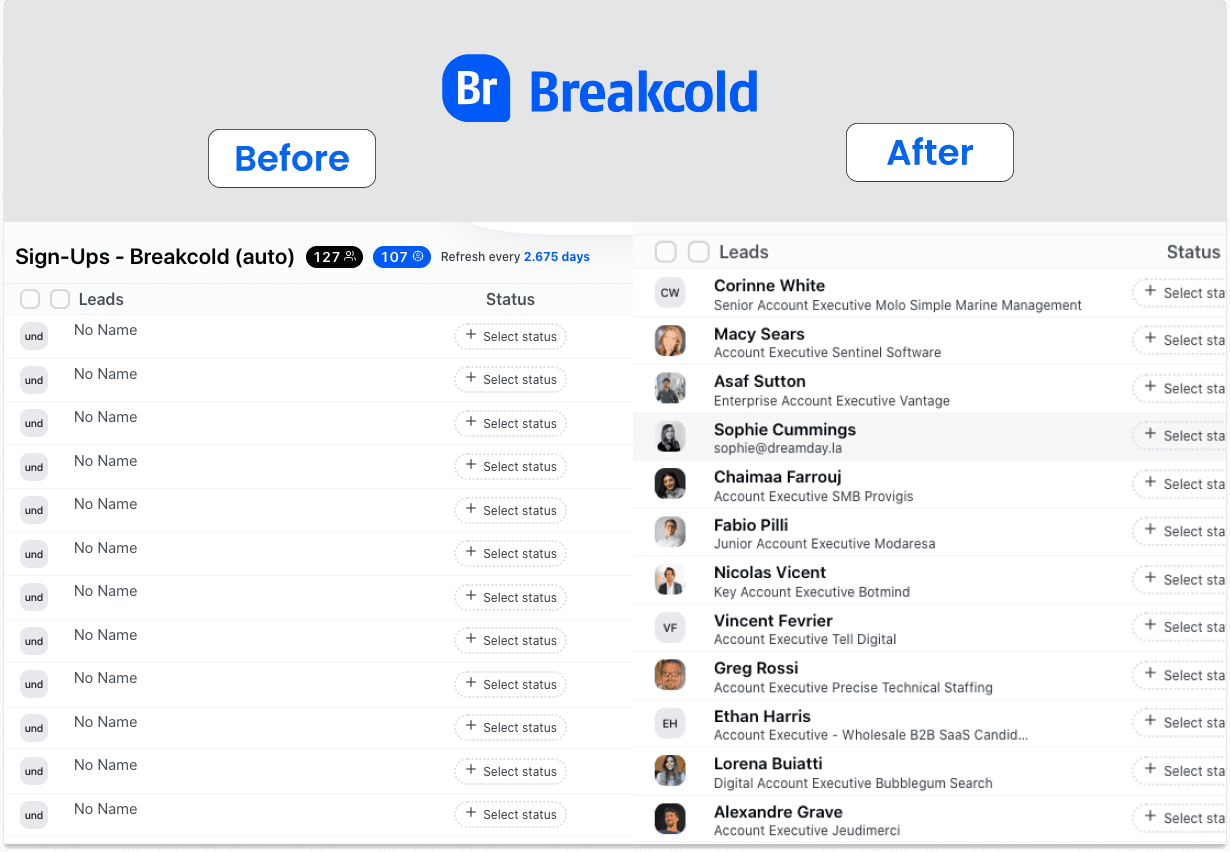
Lead qualification of leads that had no contact information except their email
What actions need to be taken to move the prospect to the next stage?
During this phase, you need to do some research about the leads generated and determine if they fit your Ideal Customer Profile (ICP) - meaning, do they look like your existing perfect customers?
Sales Pipeline Stage 3: Demo or Meeting
What is the state of the prospect during this phase?
For some companies, this stage is the equivalent of having a sign-up on your product. Basically during that stage, you need to create trust with the prospect that's why whatever your offer setting up a Demo or meeting is a great move.
What actions need to be taken to move the prospect to the next stage?
You'll have to follow up your prospect and for example send him/her your calendly link or ask to book a time in their calendar.
If you've started building B2B relationships from the start with your prospects, they will ask themselves to have a demo of your solution.
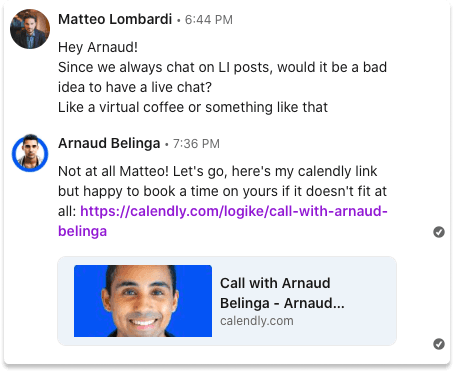
Example of booking call with a Calendly invite
Sales Pipeline Stage 4: Proposal
What is the state of the prospect during this phase?
During this phase, the prospect receive your offer and need to sign it. He/she's aware of your pricing and now need to evaluate if it's worth it or not.
The equivalent of this phase could be a free trial for a B2B startup SaaS.
What actions need to be taken to move the prospect to the next stage?
You need to send the proposal to the prospect using secure online platforms like PandaDoc or DocuSign. Depending on your business, you'll have to build a sales presentation (basically a recap powerpoint or a trumpet sales pod).
Sales Pipeline Stage 5: Negotiation and commitment
What is the state of the prospect during this phase?
For high-paying offer, prospects will negotiate your pricing and this process can take weeks to months. At this stage there is a high probability of closing the deal, usually more than 40%.
The equivalent of this phase could be a free trial for a B2B startup SaaS.
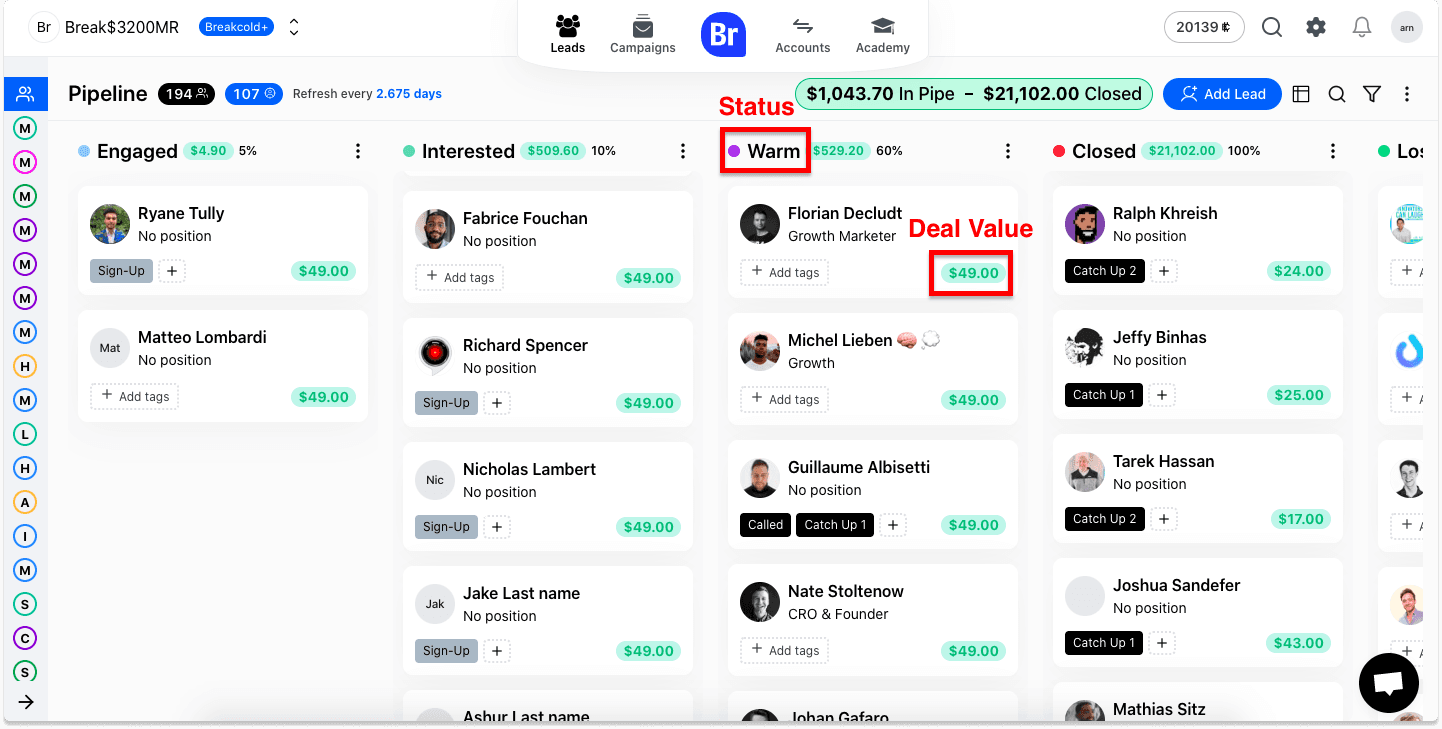
Make sure to add a deal value to prospects
What actions need to be taken to move the prospect to the next stage?
You'll have to send many emails back-and-forth and might do other sales calls.
Sales Pipeline Stage 6: Opportunity won
What is the state of the prospect during this phase?
Bravo, the prospect is now a paying customer! The deal has been signed and secure and the sales commissions are in the pocket of the sales team.
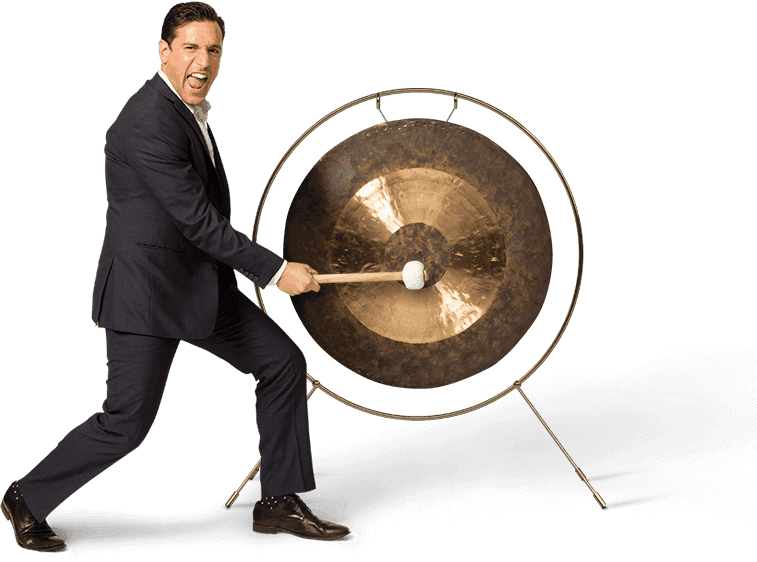
Someone celebrating a sales by using a Gong (photo credit: Gong.io)
What actions need to be taken to move the prospect to the next stage?
During that stage, the only thing is to enjoy and hit the sales gong if you have one.
Sales Pipeline Stage 7: Post-purchase
What is the state of the prospect during this phase?
During that stage, the paying customer is actively using your service and solution. It's a key moment for retention and word of mouth. The goal is obviously to avoid churn (the customer stop paying for your product or service).
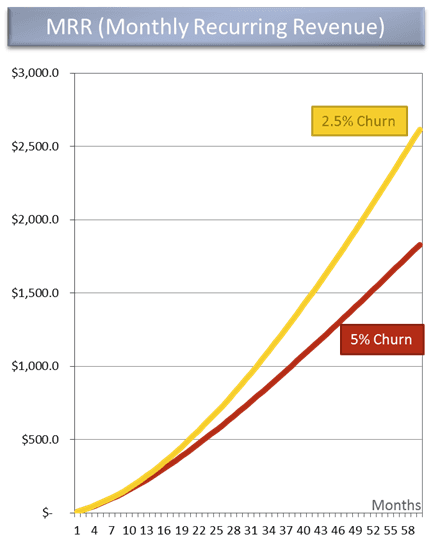
Impact of churn on revenue growth
What actions need to be taken keep the customer in that stage?
To keep the paying customer in that stage you'll need to:
have an impeccable customer support
checking on the customer times to times
helping him/she to have good results
incentivize them to refer you to other clients
expand revenue with some upsell that will improve his/her results
3°) The 8th Sales Pipeline Stage no one talks about: client lost
What is the state of the prospect during this phase?
Not every customer stays forever, even if your service or product is perfect, you'll have endemic churn (churn you couldn't avoid due to businesses ceasing activity or taking a break due to a seasonal business).
What actions need to be taken to get customers back in the post-purchase stage?
Some customers will be lost forever but like I said above it doesn't mean that they were not satisfied about your solution.
Your job is to keep engaging with them to stay top of mind so when they'll launch a new business venture, you'll be their first choice. Doing this will also help them refer your product or service to other people due to its excellent customer experience.
4°) How to build sale pipeline stages that fit your business?
Although there are overall about 8 sales pipeline stages that can fit any kind of business. The best thing is to adapt these stages to the reality of your business. You don't need to come up with 8 sales pipeline stages, you can keep it simple with less than 5 stages.
Example with a Real Estate Agency
A real estate agency sometimes prospect to get potential buyers but most buyers come to them directly, so you can have a real estate agency pipeline where there is no prospecting stage.
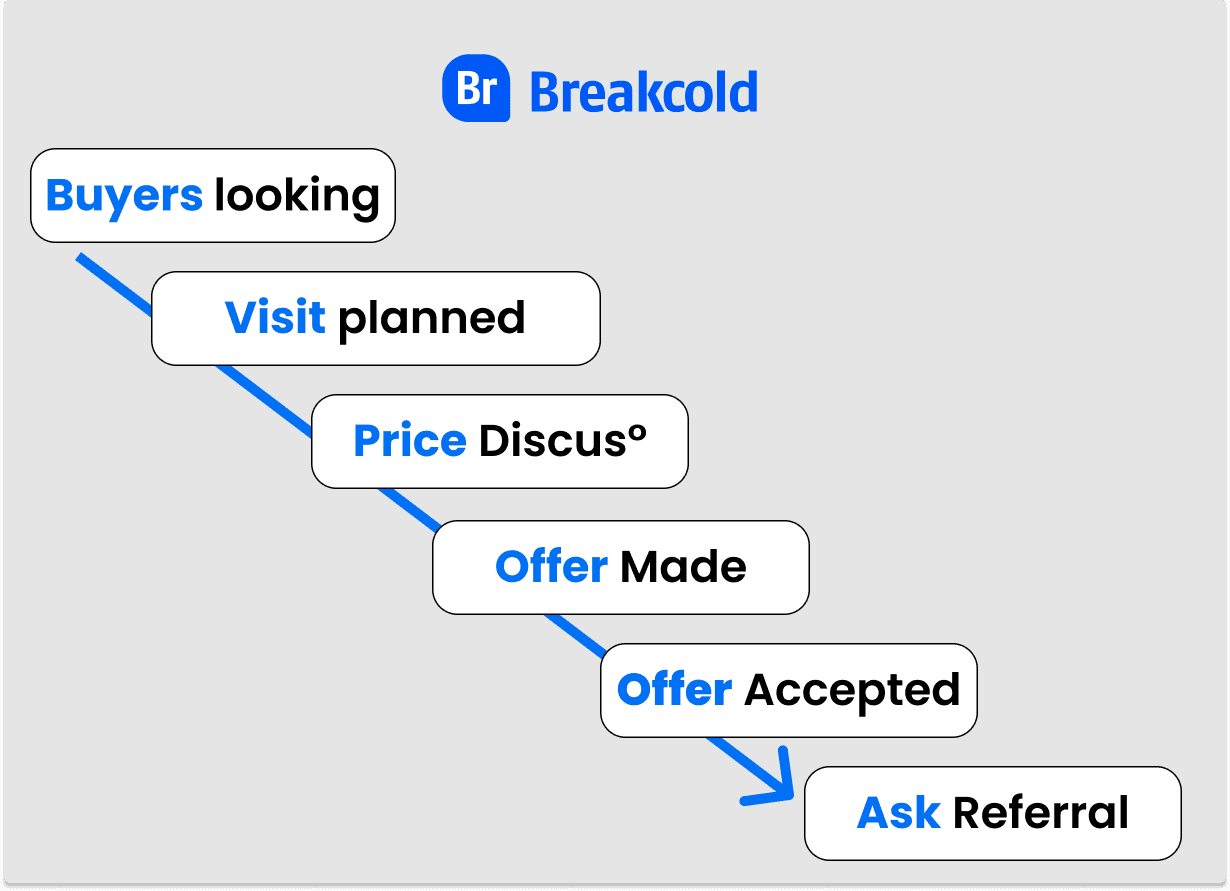
Sales pipeline example for real estate agencies
If you're a real estate agency, your sales pipeline stages could go like this:
stage 1: buyers looking for a house
stage 2: visit planned
stage 3: price discussion
stage 4: offer made
stage 5: offer accepted
stage 6: referral
Example with a Financial Service Firm
A financial service firm (including law firms) are often competing against other firms on huge deals. The potential client ask a pricing fee from 5 firms for example and then decide which one to choose. That's why a financial service firm pipeline can have no prospecting stage at all.
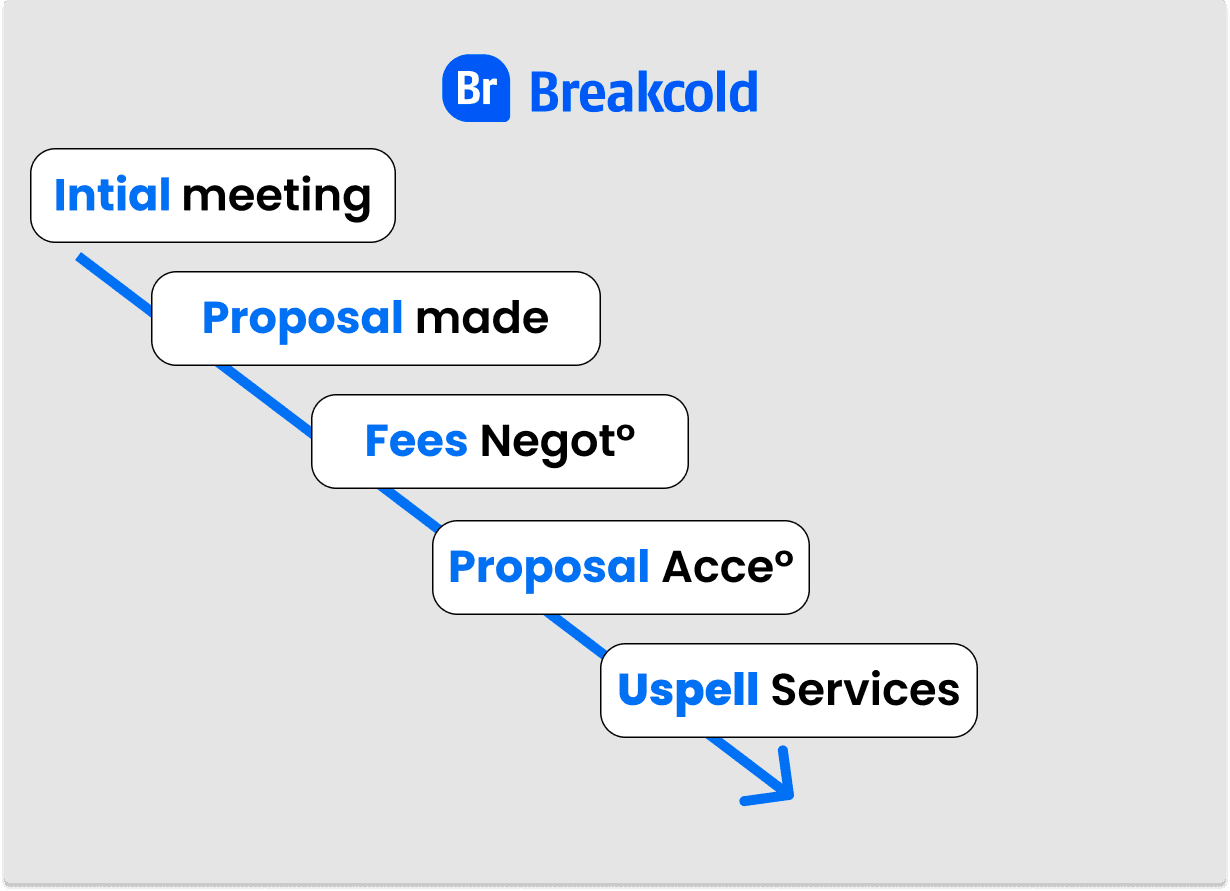
Sales pipeline example for Financial Service Firms
If you're a financial service firm, your sales pipeline stages could go like this:
stage 1: initial meeting with prospect
stage 2: proposal made
stage 3: fees negotiation
stage 4: proposal accepted
stage 5: upsell
Example with a Startup Sales Team
Any startup sales pipeline stages are pretty similar. The only difference would be if the startup is a B2B one and if it targets enterprises or not. Demos don't exist for product-led startup as they are mostly self-service.
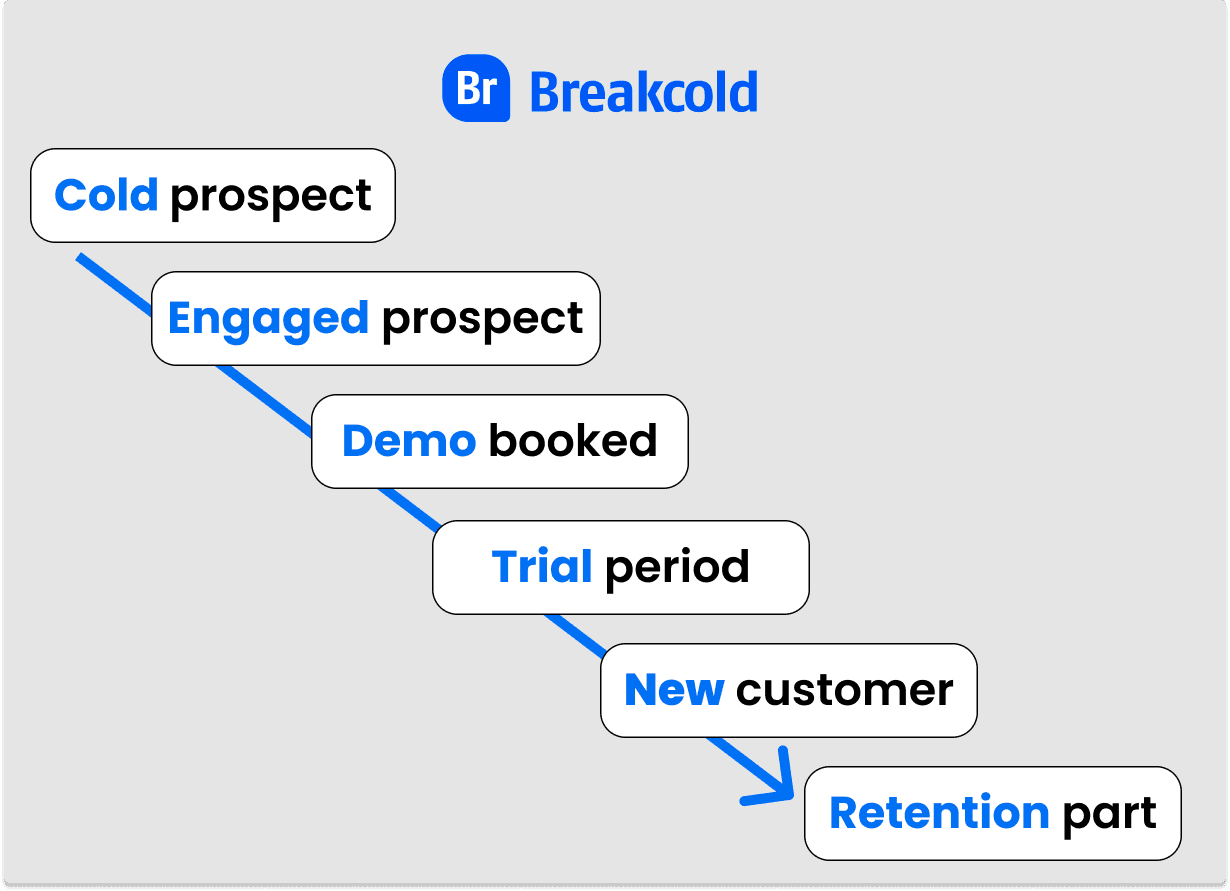
Sales pipeline example for Startup Sales Team
If you're a startup sales team, your sales pipeline stages could go like this:
stage 1: cold prospect
stage 2: engaged prospect
stage 3: demo booked
stage 4: trial period
stage 5: customer closed
stage 6: retention
5°) My Secret hack to accelerate your sales pipeline
My secret hack to accelerate your sales pipeline is to use social selling. Basically, if you can manage to engage with prospects where they are the most active (eg. LinkedIn or Twitter), you'll be able to create a B2B relationship faster.
You win deals by staying top of mind and being persistent.
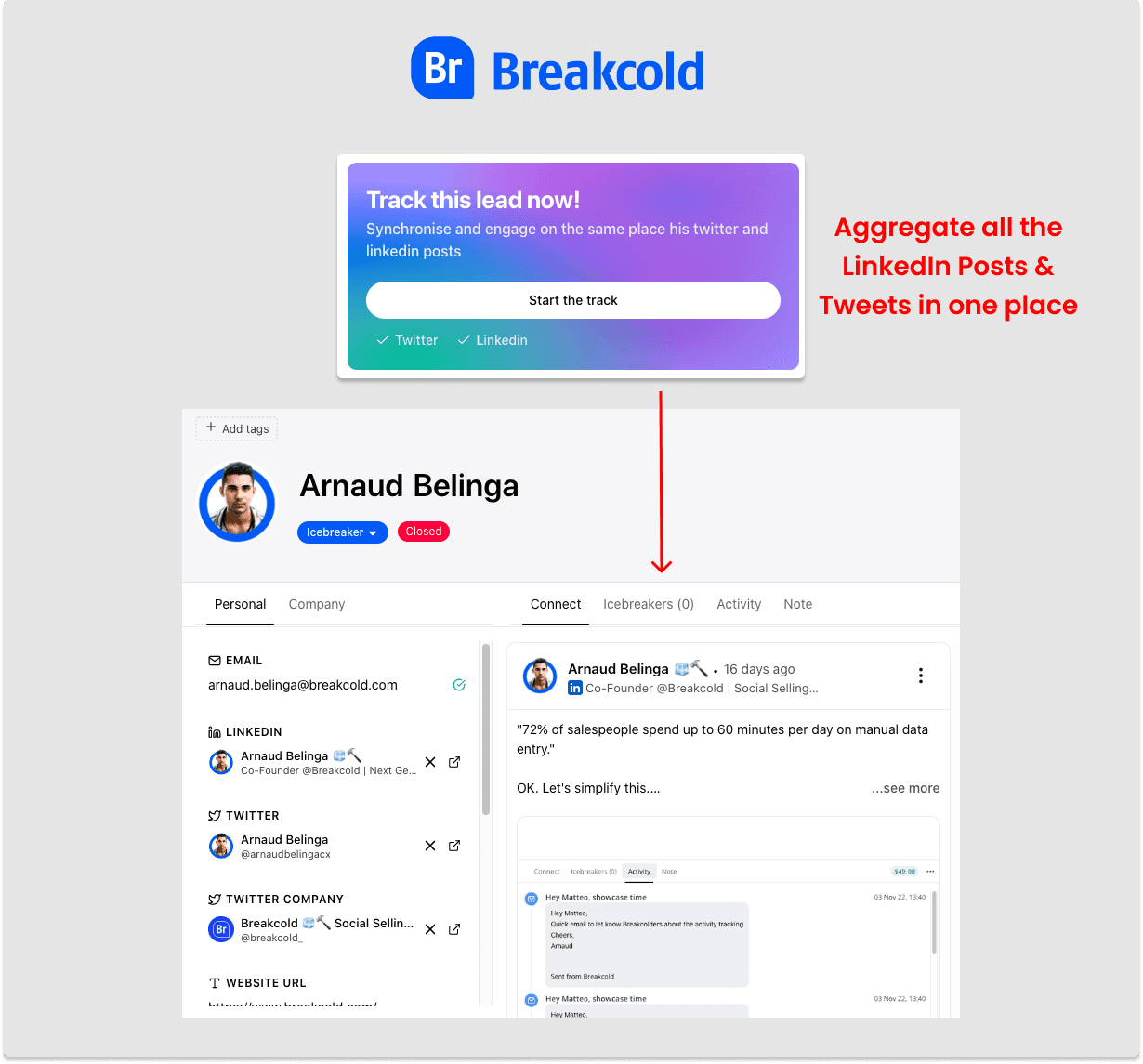
To track leads, you need their social media URL
The process is super simple:
track the social media activity of your prospects in your sales pipeline
like and comment their posts when you see them in your feed
send relevant and personalized emails, LinkedIn/Twitter messages when you can




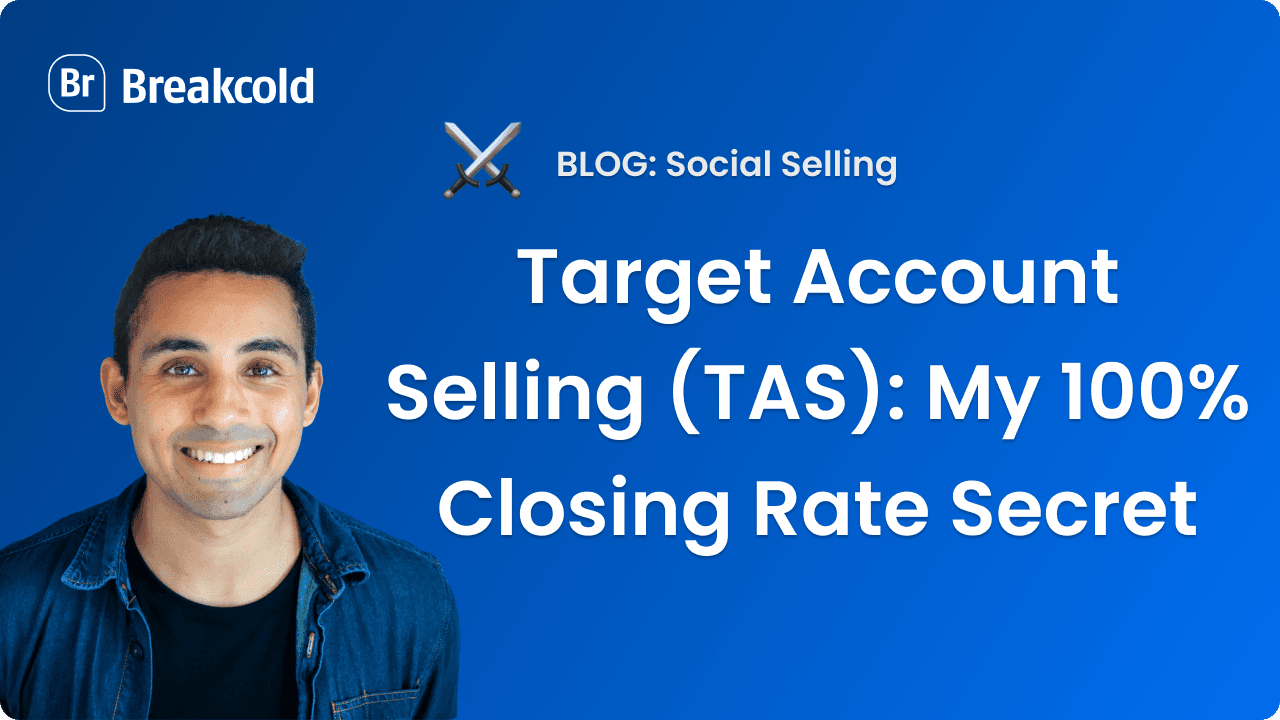
![Why Using A Social Selling CRM? [Versus A Traditional CRM]](https://framerusercontent.com/images/2QaQkaYBYsqJZVbZ4DIcEx01YPY.png)

